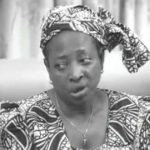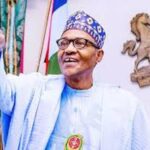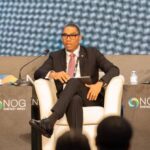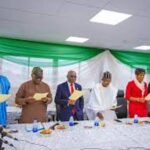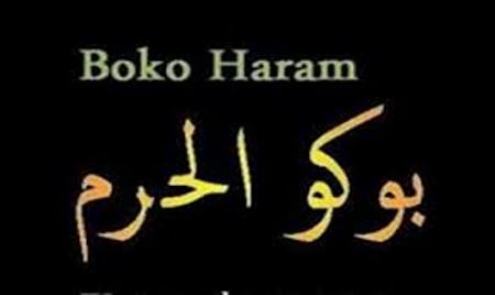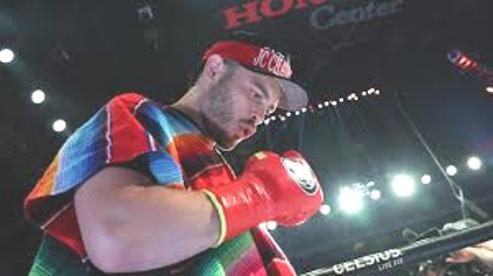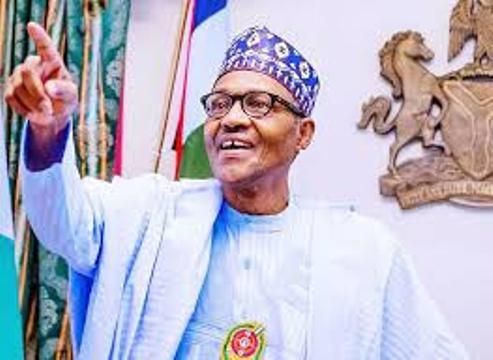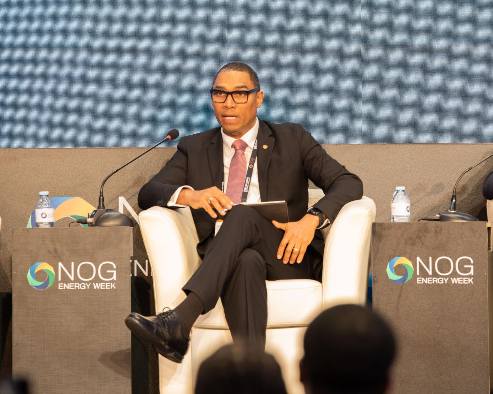LAGOS FEBRUARY 18TH (NEWSRANGERS)-When Muhammadu Buhari was first elected Nigeria’s president eight years ago, it was on the promise that he would help put an end to the Boko Haram insurgency which has forced millions of people from their homes in the north-east and cost thousands of lives. Eight years on, the region appears safer, with large swathes of territory reclaimed from the jihadist group. But as Nigerians prepare to elect his successor, the true picture is more complex.
Rukaiya Goni lives next to a local primary school that was burned down by the Islamist militant group Boko Haram, when it took over the town of Damasak in late 2014.
Boko Haram means “western education is forbidden”. The group has repeatedly targeted secular schools, including the kidnapping of over 200 schoolgirls from the town of Chibok.
Nine years ago, Ms Goni fled her home with 11 members of her family, crossing the nearby border into Niger.
“We left because of the insecurity caused by Boko Haram,” she tells me in Kanuri, via a translator. “They took over Damasak so we went to Diffa, in Niger.” At the time she just had a six-year-old daughter. Her five sons were all born in Niger and returned with her to Damasak a year ago.
“We heard it was safer here now, so we decided to come back,” she explains. I ask whether she ever thought she’d be able to return home. “Yes, we wanted to come back to our home town and we prayed daily for peace to return. I feel very happy to be back. There’s no place like home.”
When asked about his performance on security, President Buhari and his supporters often say that the north-east is a lot safer than it was when he came into power. The fact that people like Ms Goni are able to return home is testament to that. But the region is far from safe.
“Insecurity is still raging here, and most importantly, it’s affecting the people we’re here to help,” says David Stevenson, the World Food Programme (WFP) country director for Nigeria.
“They continue to be displaced, we have new arrivals coming into IDP camps and they’re telling their stories that they don’t feel safe in their homesteads and in their farms.”
Insurgent groups, including Boko Haram, are still able to threaten the security in Borno state despite not holding much territory. A lot of the state is still considered too dangerous to travel across by road. In order to get safely from Damaturu in Yobe state to Borno’s capital, Maiduguri, we have to fly in a UN helicopter.
The Islamic State West Africa Province (Iswap), which splintered from Boko Haram seven years ago, is also becoming more of a threat. In 2022, it claimed the highest number of attacks since its formation, and it controls strategically important territory around Lake Chad.
There is also evidence that the group’s area of activity has spread to the north-west of the country, where they’ve infiltrated kidnapping gangs.
President Buhari is constitutionally barred from running again, but his inability to completely rid the country of the insurgency, as well as the spread of the violence, has turned some people in northern Nigeria, against his party, the All Progressives Congress (APC).
In Dawauru, in the city of Kano, one of West Africa’s largest grain markets, wholesaler Mukhtar Garba Intini says he won’t be voting for the APC.
“Under the APC we’ve really suffered, we are praying for PDP to come back,” shouts Mr Intini angrily. He gets his grain from Maiduguri and says he’s always had to deal with insecurity.
“Security is a problem. There are many of our people that went to Maiduguri, up till now we haven’t heard from them, we just pray for them.”
Insecurity is something travellers in the region contend with daily. When we drive 300km (186 miles) east to Potiskum in Yobe state, we have to use armoured vehicles, as kidnapping gangs roam the roads.
Businessman David Oyebamiji lives in the southern city of Ibadan, but travels to Potiskum every month to buy grains and beans to sell down south. As he contemplates casting his vote, he says insecurity has driven up food inflation.
“Things didn’t used to be this expensive before, but due to the situation of the country – the insecurity, the Boko Haram issue, the price of things has increased. Farmers can’t farm safely so everything is expensive.”
He explains that in the last four years, during President Buhari’s second term in office, the price of a 105kg (230lb) bag of beans has doubled.
He won’t say who he’ll vote for but he has one wish: “In order for business to be better, the issue of security has to be dealt with first.”
President Buhari’s inability to deal with security is one of the reasons supporters of Atiku Abubakar from the main opposition Peoples Democratic Party (PDP) think he might be in with a chance of winning the northern vote this time round. It helps that he’s the only main candidate to come from the north.
Dolly Kola-Balogun is a businesswoman and PDP supporter who lives in the capital, Abuja.
“I’m not supporting the APC because I feel they’ve failed as a political party at the national level. They’ve failed to tackle the insurgency in the north-east, and now there are other issues including kidnapping for ransom.”
She thinks that the large number of young people who’ve registered to vote could work in Mr Abubakar’s favour, even though at 76, he’s the oldest of the three main candidates. Some 40% of the 10 million newly registered voters are under 35.
“More young people are engaged this time. In the south they’re more pro-Obi but northern youth are more pro-Atiku.”
More than half of registered voters, about 49 million people, live in northern Nigeria, and traditionally turnout has been higher in the region than in southern cities like Lagos. Winning over northern voters could potentially help secure the ticket.
Another indictment of the ruling party’s performance is the 1.6 million people who are still internally displaced in Borno state, due to the fight against Boko Haram.
Hawa Goni, 25, left her village in Dikwa, Borno state, seven years ago. “Boko Haram were killing people’s husbands and kidnapping people, that’s why I decided to flee with my husband,” she explains.
After a short spell in Maiduguri, she tried moving down south to Lagos, Nigeria’s biggest city, hoping for a better life, but they only lasted a year. “It was too difficult, very expensive,” she tells me. “We couldn’t manage.”
Now she’s back in Maiduguri, but aid has been cut to the camp where she lives, as part of a drive by the state governor, a member of the APC, to encourage internally displaced people to head to their homes and become less dependent on aid.
It’s had devastating consequences: her nine-month-old baby, Amina, is malnourished and relies on emergency food rations from a government-run clinic in the camp, supported by the WFP. She is being given a highly nutritious paste made out of peanuts for six months, to help get her body weight up.
Rights groups and think tanks have criticised the state government’s decision to close down the camps, saying it has pushed over 200,000 people into deeper suffering and destitution.
Like many other households in the camp, the only source of income for Hawa Goni’s family is the firewood her husband collects and sells. He doesn’t earn anywhere near enough to feed her family.
She takes me to her tent in the camp and shows me a nearly empty plastic container of millet. That’s all the food they have left. As she talks to me, she tells me she can’t answer all my questions because she feels faint. She hasn’t eaten all day.
“It’s been like this for about five months now. Parents with six children are entitled to monthly rations of rice, maize and beans, but we don’t always get them on time. Sometimes it takes more than a month or two to get them, and that won’t do for us, especially with six children.”
The state government has stopped the WFP from distributing food aid in Maiduguri. It’s taken over the distribution of some emergency rations, but delivery has been patchy.
Hawa Goni is not able to vote because she doesn’t have a voters’ card, but she says she hopes there will be a change of government.
“We have suffered a lot. We don’t care about clothing and other material things, we just want food and shelter.”
She wants to return to her home in Dikwa, but much of the area is still too insecure.
None of the main election candidates make direct mention of Boko Haram or Iswap in their manifestos. They do however have suggestions for how to tackle jihadists more broadly.
Bola Tinubu of the ruling APC wants to create “highly trained and disciplined anti-terrorist battalions with special forces units.” He also wants to “win the hearts and minds” of communities affected by the insurgency by offering them emergency and economic support.
Mr Abubakar, the main opposition candidate, wants to deal with the insurgency by using “alternative approaches to conflict resolution, such as diplomacy; intelligence; improved border control; traditional institutions; and good neighbourliness.” He also wants to bring more development to the north-east.
Peter Obi of the Labour Party proposes to increase regional cooperation to secure borders, and “prosecute criminals, bandits and terrorists to end impunity”.
None of the main candidates gives details for how much these initiatives would cost, or how they would fund them.
But whoever replaces President Buhari will need a clear plan if they’re to make good on the promises he made eight years ago. The continued presence of insurgent groups and their spread to other parts of the country could pose a threat to stability in Africa’s most populous nation.
BBC News
